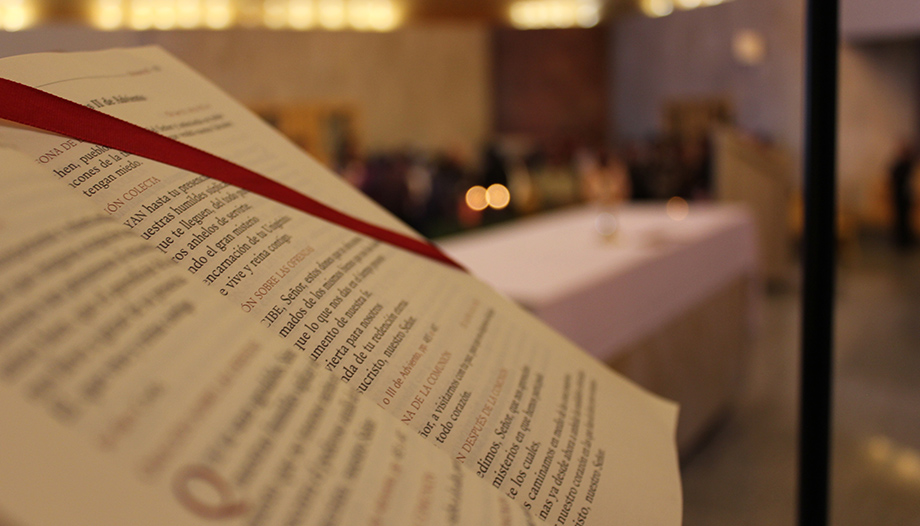When, in today's first reading from the book of Isaiah, King Ahaz is commanded to ask for a sign, he seems to show humility and resists doing so. But he was far from being a pious man, and the prophet, knowing that this humility is only apparent, loses patience. Anyway he gives him a sign from God. A "maiden", "almah" in Hebrew, a woman of marriageable age and childbearing age, will give birth and call her son "Immanuel", a name meaning "God is with us". Some scholars think this probably had an immediate application: a princess, daughter of the king, would give birth to a child whose birth would ensure the continuity of the dynasty and thus show that God was still "with" his people. While this is certainly possible, it is interesting to note that the Jewish tradition itself gave it a more prominent meaning. In the Greek translation of the sacred books of Israel, a work called the Septuagint prepared a few centuries before Christianity, the Hebrew "almah" is translated as "parthenos," which explicitly means "virgin." The sign becomes more and more extraordinary.
Acaz had been offered a sign "deep in the abyss or high in the sky."The only one so unique that he can reach beyond death and enter heaven. In today's Gospel we see how God fulfills this sign and gives it its true meaning. A virgin would indeed conceive, and give birth in a miraculous way. The "sign" went far beyond the mere continuation of a dynasty. It not only reached to heaven, but proceeded from it. It would eventually reach beyond death. And God would "be" with his people in a way that no one had ever imagined before. Thus we read: "The generation of Jesus Christ was in this way."
Jesus Christ is the ultimate sign. As God made man, he is truly God with us, in the most literal way. Mary is the virgin who has conceived. The sign of Christ's life would ultimately reach beyond death through the resurrection. And yes, in him the Davidic dynasty would also continue.
So unprecedented was this sign, so unprecedented, that Joseph was not prepared for it. He sensed that Mary had conceived "of the Holy Spirit," that is, of God, but he felt the need to withdraw and was preparing to separate from Mary discreetly, applying the laws of the time with the utmost delicacy. Then, an angel of God revealed to him what had happened, and that he was called to protect Mary and the child, who would be born of her and who would "save the people from their sins". God's extraordinary sign did not crush human freedom and agency. On the contrary, it brought out the best in this man. Joseph's great concern is not to defame a woman. This is also part of God's sign: respect and gentleness towards women. It is a sign that is sorely lacking in our society, and which we are called to live today.
Homily on the readings of Sunday IV of Advent
The priest Luis Herrera Campo offers its nanomiliaa small one-minute reflection for these readings.








